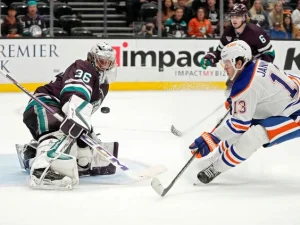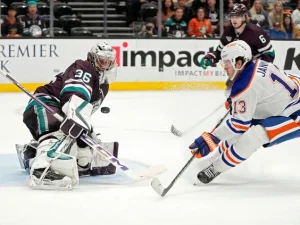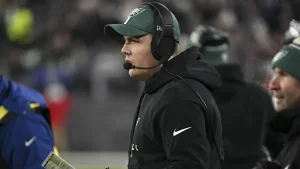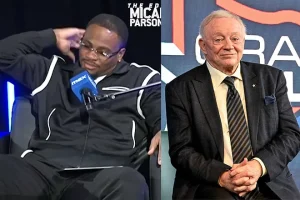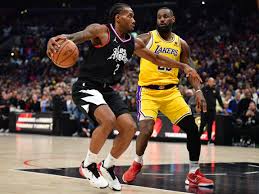
Mark Cuban made a last-minute attempt to halt the Luka Doncic-Lakers transaction.
Introduction
In the world of the NBA, trades involving superstars can shift the very foundation of a franchise. One of the most unexpected moves in recent memory would be a trade involving Luka Dončić, the Dallas Mavericks’ crown jewel, to the Los Angeles Lakers. Imagine this: Mark Cuban, the billionaire entrepreneur and longtime owner of the Mavericks, intervening in a last-minute bid to halt this seismic transaction. With Luka Dončić being the face of the franchise and a player considered one of the most promising young talents in the NBA, the stakes of such a trade would be enormous.
In this speculative scenario, Cuban’s attempt to prevent the trade sparks controversy, fuels media frenzy, and raises questions about his future influence within the organization. What might Cuban have been thinking? And what could this trade mean for the Mavericks, the Lakers, and the NBA as a whole?
Mark Cuban’s Role in the Mavericks’ Success
Mark Cuban’s involvement with the Dallas Mavericks has been nothing short of transformational. When he bought the team in 2000, the Mavericks were a middling franchise with no significant playoff success. Over the course of his ownership, Cuban reshaped the Mavericks into a consistent contender, culminating in their 2011 NBA Championship win. Cuban has long been known for his aggressive business strategies, his outspoken nature, and his relentless pursuit of success on and off the court.
Cuban’s impact on the Mavericks extended beyond mere financial investment. He built a reputation as an innovative owner who embraced new approaches to team management and fan engagement. His willingness to spend money on high-level talent and resources, from scouting to analytics, helped position the Mavericks as a modern and forward-thinking franchise.
When the team selected Luka Dončić in the 2018 NBA Draft, Cuban’s vision was set for the future. Dončić, a European prodigy, was seen as the heir to the Mavericks’ star-studded legacy. Since joining the NBA, Dončić’s meteoric rise has been nothing short of extraordinary. With his unique skill set, basketball IQ, and leadership ability, Dončić quickly became the face of the Mavericks and one of the brightest stars in the NBA.
However, Cuban’s relationship with Dončić took a turn when the team began to struggle in terms of roster construction and results. With a core built around Dončić and his then-teammate Kristaps Porzingis, the Mavericks appeared to be on the brink of greatness, but they couldn’t consistently build a championship-contending roster around their star player.
The Trade Speculation
In this speculative scenario, imagine that the Mavericks are in the midst of another disappointing season. The team has failed to surround Dončić with the necessary talent to compete for an NBA championship. Despite the presence of Kyrie Irving and other role players, the Mavericks continue to struggle, and Dončić’s frustration begins to mount.
Enter the Los Angeles Lakers, who are dealing with their own set of challenges. The team, led by LeBron James, has an aging roster and is looking to retool for another championship run. With their resources and assets, the Lakers see an opportunity to acquire a young, transcendent player like Dončić, whose presence could revitalize the team and allow them to chase titles for years to come.
The Lakers propose a blockbuster trade: Luka Dončić to Los Angeles in exchange for Anthony Davis, Max Christie, and a future first-round pick. It’s a trade that makes sense on paper. The Lakers get a new franchise player to pair with LeBron James, while the Mavericks get a seasoned All-Star in Davis to provide stability and defense, alongside promising young talent like Christie.
However, the trade is not yet finalized. Mark Cuban, despite no longer holding majority ownership of the Mavericks, still has a significant voice in the organization, especially in terms of strategic decisions. In the final hours before the trade is set to be completed, Cuban gets wind of the deal and realizes the impact it could have on the Mavericks’ long-term future.
Cuban’s Last-Minute Intervention
Mark Cuban, ever the businessman and strategist, realizes that trading Dončić could signal the end of an era for the Mavericks. Luka Dončić isn’t just a star; he’s a generational talent with the potential to lead a franchise for the next decade. To let him go in exchange for a player like Anthony Davis, who is older and more injury-prone, is a risky proposition.
Cuban, though no longer the majority owner, still has a deep emotional connection to the Mavericks and the city of Dallas. He views Dončić as a cornerstone of the franchise’s future, the player who can bring the team back to championship contention. He sees the trade as a short-term fix that could derail the Mavericks’ long-term vision.
In a moment of desperation, Cuban reaches out to Mavericks general manager Nico Harrison and head coach Jason Kidd. He implores them to reconsider the deal, arguing that Dončić’s value cannot be overstated. He points out that the team has faced challenges in surrounding Dončić with the right pieces, but that it would be a mistake to let him go now when the franchise is so close to assembling the right supporting cast.
Cuban’s emotional plea doesn’t fall on deaf ears, but it comes too late. The deal is already being finalized, and the Mavericks’ front office is determined to move forward. Cuban’s intervention, while influential, is unable to reverse the tide of change.
Reactions to the Trade
When the news of the trade leaks, it sends shockwaves throughout the NBA. Fans of the Mavericks, stunned and outraged, take to social media and protest outside the American Airlines Center. Many feel that the Mavericks are abandoning their future for a short-term boost. The prospect of losing Dončić, a player who has captured the hearts of fans and turned the Mavericks into a top-tier team, is too much for them to bear.
Within the Mavericks’ locker room, reactions are mixed. On one hand, players like Klay Thompson and Kyrie Irving express their excitement about playing with Anthony Davis, a player with championship experience and elite defensive skills. However, others, especially those who have developed close relationships with Dončić, are visibly upset. The team is forced to navigate a delicate transition as they say goodbye to one of the league’s brightest young stars.
For Cuban, the trade represents a potential turning point. Though he no longer has control over the day-to-day operations of the franchise, his influence and legacy still loom large. His attempt to prevent the trade is seen by some as a last-ditch effort to preserve his vision for the Mavericks. It also highlights the emotional investment he has in the team and its future, something that could become a defining chapter in his time as the Mavericks’ owner.
The Impact on the Mavericks
From a business perspective, the trade represents a bold new direction for the Mavericks. Acquiring Davis and Christie could help solidify the team’s defense and overall depth. Davis, if healthy, could provide the Mavericks with the kind of elite two-way player they have lacked alongside Dončić. However, the trade also signals that the Mavericks are willing to move on from their franchise player in search of a more balanced roster.
For the Mavericks’ future, the move is a gamble. While Davis is a proven commodity, his injury history raises concerns about his ability to stay healthy for the long haul. The team is also giving up the best young player in the NBA, someone who could lead them to multiple championships. In the short term, the Mavericks may find success with Davis and Irving, but in the long run, it is hard to see how they could replace Dončić’s unique skill set and leadership.
The Broader NBA Impact
The trade also has massive implications for the broader NBA landscape. The Lakers, now with Dončić, form one of the most dynamic duos in recent NBA history with LeBron James. With Dončić running the offense and LeBron playing the role of mentor, the Lakers instantly become title favorites. The league takes notice, and the Lakers become the team to beat in the Western Conference.
For the Mavericks, the deal represents a shift in philosophy. No longer are they a team built around a single superstar. Instead, they are looking to build a more well-rounded roster that can compete with the deep teams of the NBA. The move could lead to a greater emphasis on defense, versatility, and depth, but it will be a difficult transition without Dončić at the helm.
Mark Cuban’s last-minute intervention to halt a trade involving Luka Dončić would be one of the most shocking and controversial moments in NBA history. While the trade ultimately goes through, Cuban’s emotional attachment to Dončić and his legacy as the Mavericks’ owner would add a layer of complexity to the situation. The trade would undoubtedly change the trajectory of the Mavericks and reshape the NBA’s power dynamics, leaving fans and analysts alike to question what could have been if Cuban had succeeded in his efforts.
In the end, Cuban’s attempt to stop the trade symbolizes the complicated nature of NBA decision-making, the emotional bonds that connect owners to their teams, and the unpredictable forces that shape the future of the league.

